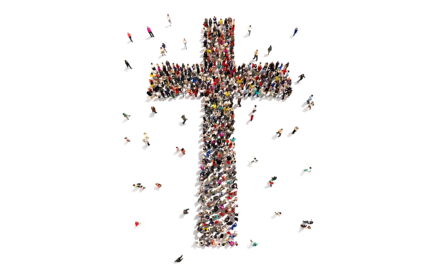 org. Every part of the Church, and many others outside of her – believers or non-believers – have received Pope Francis` clear and hope-filled words. They are also words that motivate us to assume the responsibility we all have to build a world in accordance to the Will of God, in the strength of the Spirit and through the way of Christ. Cardinals and bishops, priests, men and women religious, novices and seminarians, families, the youth and elderly, communities and institutes have received this challenge to go out “onto the street” to take – not a utopian hope – but concrete deeds in living evangelization projects to all men and women wherever they may be. And if they are on the “outskirts” then we have to go there, with all the risks and dangers it may include. He repeats to us constantly: I prefer an injured church, because she goes out to serve, to a Church that is sick because of her self-absorption. Testimony to this can be found in the section of Schoenstatt.org where on a weekly basis texts are selected which motivate us on our own pilgrimage toward the 2014 Jubilee. Undoubtedly, because we are the Church, these words are also directed to us. How happy must our Father not be with this missionary impetus which is given to us from the very heart of the Church! (Fr. José María García)
org. Every part of the Church, and many others outside of her – believers or non-believers – have received Pope Francis` clear and hope-filled words. They are also words that motivate us to assume the responsibility we all have to build a world in accordance to the Will of God, in the strength of the Spirit and through the way of Christ. Cardinals and bishops, priests, men and women religious, novices and seminarians, families, the youth and elderly, communities and institutes have received this challenge to go out “onto the street” to take – not a utopian hope – but concrete deeds in living evangelization projects to all men and women wherever they may be. And if they are on the “outskirts” then we have to go there, with all the risks and dangers it may include. He repeats to us constantly: I prefer an injured church, because she goes out to serve, to a Church that is sick because of her self-absorption. Testimony to this can be found in the section of Schoenstatt.org where on a weekly basis texts are selected which motivate us on our own pilgrimage toward the 2014 Jubilee. Undoubtedly, because we are the Church, these words are also directed to us. How happy must our Father not be with this missionary impetus which is given to us from the very heart of the Church! (Fr. José María García)
![]()
WEEK 3/2014

The Apostle John points to one of the attitudes of the Christian who wants to abide in the Lord: he should know what is going on in his heart. Therefore, the Apostle says: “Beloved, do not believe every spirit, but test the spirits. Know how to discern the spirits, to discern whether it truly abides in the Lord or whether it is something else which distances you from the Lord. Our hearts always have desires, wants, thoughts (…) That is why the Apostle says: test what you are thinking, what you are feeling, what you want…If it is in line with the Lord, alright, but if not …Test the spirits to see whether they truly come from God, for many false prophets have gone out into the world. Prophets or prophecies or suggestions: “I want to do this”. But this does not lead you to the Lord, it distances you from Him. This is why it is necessary to be watchful. A Christian is precisely a man or woman who knows how to watch his or her heart. And so many times our heart, with the many things that come and go, seems like a local market where you find everything …And No! We should weigh things up — this comes from the Lord and this does not — in order to remain in the Lord.
Mass at Santa Marta, 7.1.2014
Saint John has a very clear and simple idea: Every spirit that acknowledges Jesus Christ come in the flesh, belongs to God and every spirit which does not acknowledge Jesus does not belong to God. This is the spirit of the antichrist. But what does it mean, to recognise that the Word became flesh? Essentially it is a matter of recognizing the path travelled by God, recognizing that He, being God, emptied himself, humbled himself unto death on the Cross.” This is the pathof Jesus Christ: abasement, humility and also humiliation. So if a thought or a desire leads you on the road of humility, abasement, and service to others, then it comes from Jesus. But if it leads you on the path of self-importance, vanity and pride, or on the road of abstract thought, then it is not from Jesus. If we think of the temptations Jesus experienced in the desert: the three proposals that the devil made to Jesus are suggestions that intended to take him away from this path, the path of service, humility, humilitaion and charaity. But the charity accomplished with his life, not so? To each of these three temptations Jesus said no: “No, this is not my way.”
Mass at Santa Marta, 7.1.2014
Before ascending to Heaven, Jesus told us to go out to the whole world to baptize. And from that day until today, this has been an uninterrupted chain: children were baptized, and then their children, and then these children’s children … And today also, this chain continues. These children are a link in the chain. You, parents, have a baby boy or a baby girl to be baptized, but in a few years, they will be the ones who will have a child or a grandchild to be baptized. So is the chain of faith! What does this mean? I would like to say only this to you: you are the ones who transmit the faith, the transmitters. You have the duty to transmit the faith to these children. The faith is the most beautiful inheritance you will leave them! Only this. Take this thought home with you today. We must be transmitters of the faith. Think of this, think always how to transmit the faith to the children. Today the choir is singing, but the most beautiful choir is this one of the children, who make noise. Some will cry because they are not comfortable or because they are hungry. If they are hungry, mothers, give them to eat, don’t worry, because they are the protagonists here. And now, with this awareness of being transmitters of the faith, we continue the ceremony of Baptism.
Feast of the baptism of the Lord, 12.1.
I ask you a question: can a person baptize him or herself? No one can be self-baptized! No one. We can ask for it, desire it, but we always need someone else to confer this Sacrament in the name of the Lord. For Baptism is a gift which is bestowed in a context of care and fraternal sharing. Throughout history, one baptizes another, another and another… it is a chain. A chain of Grace. I cannot baptize myself: I must ask another for Baptism. It is an act of brotherhood, an act of filiation to the Church. In the celebration of Baptism we can see the most genuine features of the Church, who like a mother continues to give birth to new children in Christ, in the fecundity of the Holy Spirit. Let us, then, ask the Lord from our hearts that we may be able to experience ever more, in everyday life, this grace that we have received at Baptism. That in encountering us, our brothers and sisters may encounter true children of God, true brothers and sisters of Jesus Christ, true members of the Church. And do not forget your homework today: find out, ask for the date of your Baptism. As I know my birthday, I should know my Baptism day, because it is a feast day.
General Audience, 8.1
We are bearers of a new hope, for Baptism gives us this new hope: the hope of going on the path of salvation our whole life long. And this hope nothing and no one can extinguish, for it is a hope that does not disappoint. Remember, hope in the Lord never disappoints. Thanks to Baptism, we are capable of forgiving and of loving even those who offend us and do evil to us. By our Baptism, we recognize in the least and in the poor the face of the Lord who visits us and makes himself close. Baptism helps us to recognize in the face of the needy, the suffering, and also of our neighbour, the face of Jesus. All this is possible thanks to the power of Baptism!
General Audience, 8.1.
Thus, this Feast lets us see a double movement: in one direction, the movement of God towards the world, towards humanity — the whole of the history of salvation, which culminates in Jesus — and in the other, the movement of men towards God — let us think of religions, of the quest for truth, the journey of the nations toward peace, interior peace, justice, freedom. And this double movement is driven by a mutual attraction. What is it that draws God? It is love for us: we are his children, he loves us and wants to free us from evil, from sickness, from death, and to bring us to his home, to his Kingdom. “God, by his sheer grace, draws us to himself and makes us one with him” (Apostolic Exhortation Evangelii Gaudium, n. 112). And from us too there arises a love, a desire: the good always draws us, truth draws us, life, happiness, beauty attracts us… Jesus is the meeting point of this mutual attraction, of this double movement. He is God and man: Jesus. God and man. But who took the initiative? God, always! God’s love always comes before our own! He always takes the initiative. He waits for us, he invites us, the initiative is always his.
Angelus, 6.1.
The Church stands entirely within this movement of God toward the world: her joy is the Gospel, to mirror the light of Christ. The Church is the people who have experienced this attraction and bear it within, in their hearts and in their lives. “I would like to say — sincerely — I would like to say to those who feel far from God and from the Church — I would like to say respectively — to all those who are fearful or indifferent: the Lord is also calling you to be a part of his people and he does so with deep respect and love!” (cf. ibid., n. 113). The Lord is calling you. The Lord is seeking you. The Lord is waiting for you. The Lord does not proselytize, he loves, and this love seeks you, waits for you, you who at this moment do not believe or are far away. And this is the love of God.
Angelus, 6.1.
The love of which John speaks is not the love of which soap operas are made! No, it is something else! Christian love always possesses one quality: concreteness. Christian love is concrete. Jesus himself, when he speaks of love, tells us concrete things: feed the hungry, visit the sick and so many other concrete things. Love is concrete. Christian concreteness. When this concreteness is lacking we end up living a Christianity of illusions, like the illusions that the disciples had when they looked at Jesus and believed they were seeing a ghost (…) If your heart is hardened, you cannot love. You think that to love is to imagine things. No, love is concrete! There are two criteria for this concreteness. The first criteria: love with deeds, not with words. The wind carries away our words. They are here today and gone tomorrow. The second criteria of concreteness is that in love it is more important to give than to receive. The person who loves gives, gives, gives things, life, gives himself to God and to others. In contrast, the person who does not love, who is selfish, always seeks to receive, to have things, to have the advantage. Abide with an open heart, and do not be like the disciples whose hearts were closed, and therefore did not understand anything. Abide in God and God abides in us, abides in love.
Mass at Santa Marta, 9.1.2014
Whoever abides in God, whoever is begotten by God, whoever abides in love, has victory over the world – and this victory is our faith. For our part, it is the faith. On God’s part, the Holy Spirit who makes this [victory] possible through faith. For our part, faith: it is powerful! The strength of faith has overcome the world! Our faith can do everything! It is victory! It would be beautiful to repeat this, even to ourselves, because as Christians we are often defeated. The Church is full of defeated Christians who do not believe in this, that faith is the victory – who do not live this faith. If you do not live this faith, there is defeat, the world wins, the prince of this world. Faith means confessing to God – the God who revealed Himself to us, from the time of our fathers down to the present: the God of history. We recite this every day in the Creed. But it is one thing to recite the Creed heartily, and another to parrot it, no? I believe, I believe in God, I believe in Jesus Christ, I believe – but do I believe in what I am saying? Is this a true confession of faith or is it something I says somehow by rote, because it should be said? Do I only believe some of it? Confess the Faith! All of it, not part of it! Safeguard this faith, as it came to us, by way of tradition: the whole Faith! And how may I know that I confess the Faith well? There is a sign: he, who confesses the faith well – the whole Faith – has the capacity to worship God.
Mass at Santa Marta, 10.1.2014
Do I test what I think, what I want, what I desire or do I accept it all? So many times, our heart is a road, everything passes there… Put it to the test! And do I always choose the things that come from God? Do I know which are the things that come from God? Do I know the true criterion by which to discern my thoughts, my desires? Let us think of this, and let us not forget that the criterion is the Incarnation of the Word. The Word became flesh: this is Jesus Christ! Jesus Christ became man, God made man, who lowered Himself, humbled Himself for love, in order to serve all of us. And may the Apostle John grant us this grace to know what is happening in our hearts, and to have the wisdom to discern what is of God and what is not of God.
Mass at Santa Marta, 7.1.2014
See all texts in “Francis for the Pilgrims 2014”
![]()
The aim of the pilgrimage
is the renewal of the covenant of love
as a missionary and unifying creative force,
i.e. internally the renewal of the Schoenstatt Family
and externally the shaping of covenant culture.













